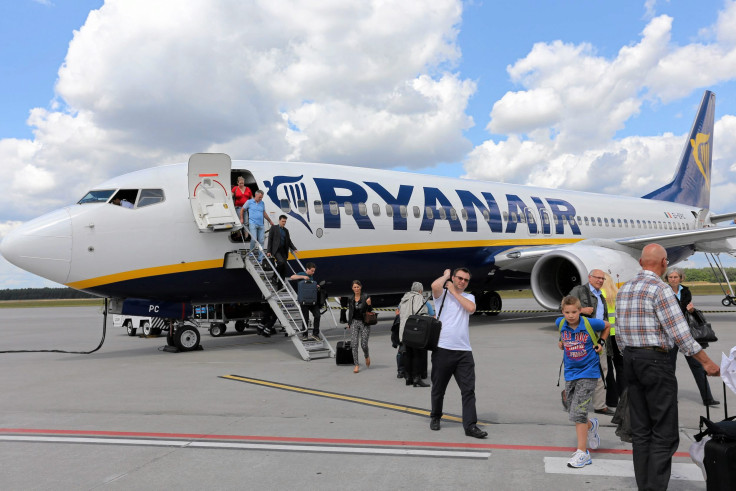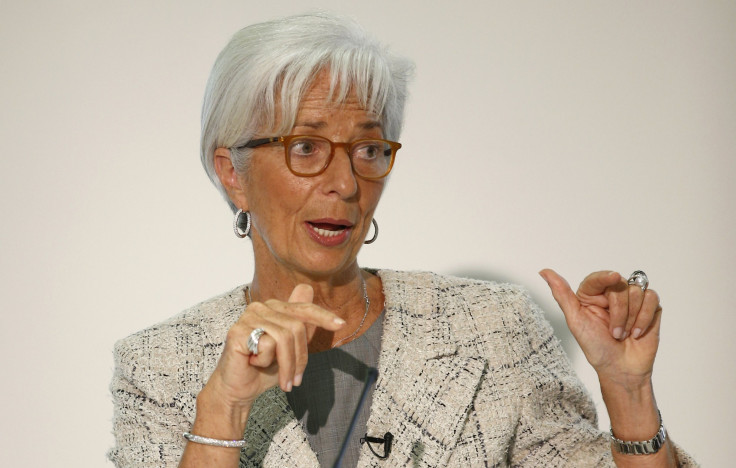Will Brexit Ruin The UK’s Economy? Fears Of Economic Toll Fuel New Warnings About Possible Exit From EU

Fears of the economic repercussions from a Brexit are fueling fresh warnings from a wide range of stakeholders, including politicians, businesses and financial bodies, as a June 23 referendum on whether the U.K. should leave the European Union rapidly approaches.
Ireland’s prime minister, the International Monetary Fund and the company Ryanair all weighed in Friday about how they expect a Brexit to hurt the U.K. economy and relations between Britain and its neighbors. The question of the Brexit — its impacts, politically and economically, not to mention its implications for the European project as a whole — has generated controversy among high-level politicians, economists, citizens and beyond since well before the official leave campaign was announced April 13.
“No alternative arrangement will be better than the one we have: a single market and seamless flows of goods, services, capital and people,” Irish Prime Minister Enda Kenny said Friday in a speech in Dublin. For the U.K. to remain in the EU was a “high priority” for Ireland for several reasons, including “for the sake of sustaining our mutual economic growth,” he added, citing 1.2 billion euros a week in trade between Ireland and the U.K.
Michael O’Leary, the CEO of Ryanair, warned Friday if the U.K. leaves the EU, the European budget airline would pull some of its investment from the U.K. He also said “extreme volatility” that might result from a Brexit could drive down ticket prices in the short term, and perhaps in the long term as well, if such a split affects air services agreements between the EU and the U.K.
“We want to continue to invest in the European Union and it [a Brexit] will be bad for air travel and British tourism,” O’Leary said. Ryanair, which flies more passengers in Europe than any other airline, is also putting 25,000 euros into an advertising campaign urging its customers to vote to remain in the EU.

The head of the International Monetary Fund also reiterated her support for the U.K. to remain in the EU.
“Depending on what hypotheticals you take, it’s going to be pretty bad to very, very bad,” IMF Managing Director Christine Lagarde told reporters in London Friday.
Lagarde’s remarks came a day after the Bank of England warned leaving the EU could sharply reduce economic growth in the U.K., and fuel unemployment and inflation.
The IMF previously has described the Brexit as a source of uncertainty that poses considerable risks to economic growth for the U.K. and beyond, even before the referendum takes place.
“We have clearly elevated Brexit as one of the serious downside risks on the horizon of global growth,” Lagarde said in April. “We believe that the risk of exit of the United Kingdom is a serious concern that, if anything, is causing uncertainty, as is indicated actually in the growth forecast for the U.K.”
She added, “It has been a long marriage between members of the European Union, and it is really my personal hope that it does not break.” She called for “good talks” that could help improve the “marriage” of the EU.
When the Financial Times polled more than 100 economists on the subject at the beginning of the year, more than 75 percent responded a Brexit would hurt the U.K.’s economy in the medium term. Just 8 percent said the economy would be better off.
In reporting its survey findings, the Times noted, “Economics cannot predict what will happen if Britain leaves the EU.”
© Copyright IBTimes 2024. All rights reserved.





















